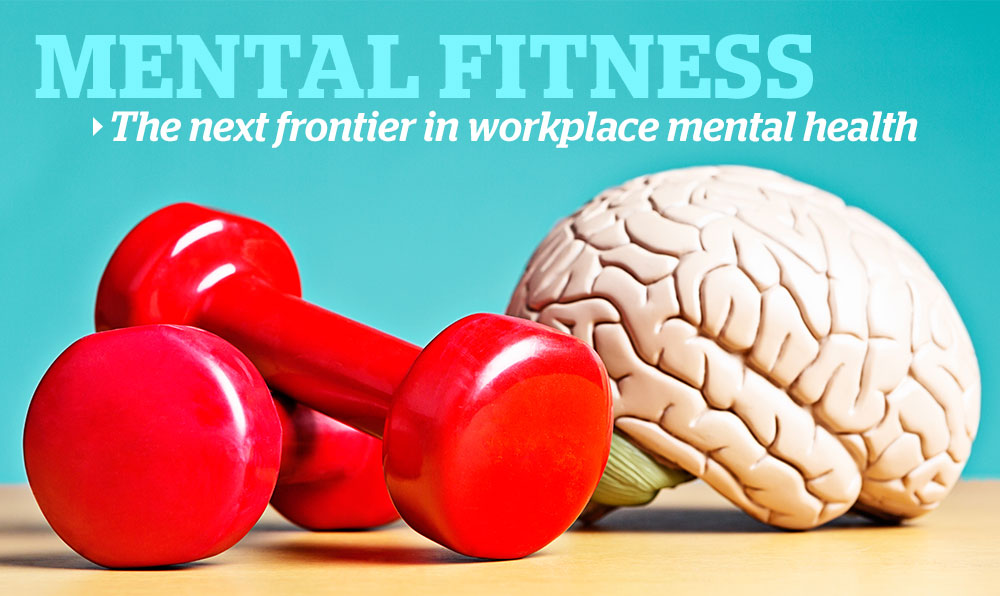

Columns/Blogs
Features
Mental Health
On the mental fitness journey, micro-decisions matter
By Bill Howatt

EDITOR’S NOTE: ‘Mental Fitness: The next frontier in workplace mental health’ is a weekly series, in partnership with Dr. Bill Howatt of Howatt HR Consulting in Ottawa. This series takes a deeper look at mental fitness — an approach to prevent mental harm and promote mental health.
We make many micro-decisions every day — some unconsciously, others consciously.
The notion that every micro-decision counts may be a foreign concept for some. However, the road to mental fitness happens only when a person is open to a journey of self-awareness, accountability, and action.
Mental fitness (i.e. positive emotional well-being and personal fulfillment) results from many good micro-decisions that support mental health. The sum of all these micro-decisions defines mental fitness. Therefore, every decision matters.
What keeps many from developing their mental health is they are on autopilot, where perhaps 95 per cent of their micro-decisions are made unconsciously and have become habits. They are not spending many brain units thinking; they are in an autopilot routine where they seldom pause to consider whether their actions are taking them towards or away from their desired goals.
The lack of clearly-defined personal goals can explain why many people live much of their life on autopilot. They get caught up in work and day-to-day life and do not evaluate the impact of their decisions. Why? It is often easier to focus on the immediate reward versus the long-term consequences.
Having a goal and not owning it are two different things. Many say they would like to lose a few extra pounds to feel better in their clothes and have more energy. However, it is impossible to obtain the goal unless they make different and better decisions.
Living on autopilot stops many from losing or keeping weight off. They fail because they make decisions based on their feelings rather than weighing the consequences of moving away from their goal.
Psychologically Safe Workplace Awards provide employers tools, data on mental health
Most of us know that if we want to lose a few pounds, we need to increase our exercise, improve our diet and hydration, get proper sleep, and pay attention to our lifestyle choices (i.e. alcohol consumption) and daily decisions.
The success formula for losing weight is simple: burn more calories than you take in. Managing good decisions defines success or failure.
Obtaining mental fitness is as challenging as gaining physical fitness. Physical fitness requires a commitment to good decisions and a desire to push the body’s limits responsibly and consistently.
Mental fitness requires being aware of what we do daily to create pleasant emotions and deal with unpleasant emotions.
A guide for making daily micro-decisions to support mental fitness
Mental fitness requires a transformation that supports and develops emotional well-being.
You face many opportunities to make decisions that can improve your mental fitness or move you away from it every day. Paying attention and owning your daily micro-decisions is an excellent place to begin.
There is no expectation of being perfect, nor do you need to be. You just need to be awake and accept the consequences. There will be a next time to make a better decision if you were not pleased with the last one.
Pick your direction
More emotional well-being (i.e. more pleasant emotions) requires wanting to see your future self happier, calmer, less reactive, and satisfied.
Be clear on why you want this and accept that it will not happen by chance. You cannot be on autopilot; you need to make conscious decisions that may be difficult (i.e. cutting toxic people out of your life).
Be proactive
Consciously plan what you will do each day to promote your mental fitness and frame the decisions you will need to make.
A mental fitness plan sets your daily goal for what you will do to boost your mental fitness: seven hours’ quality sleep, three nutritional meals, four litres of water, set plug-in and plug-out time for work, 30-minute walk, 30-minutes me time (i.e. doing something you enjoy, like reading, calling a friend, doing nothing), completing a daily gratitude journal, and enjoying a minimum of one-hour family time.
This framework can guide decision-making, provided you value the benefits of your mental fitness plan. The end goal is creating pleasant emotions that help you feel in control of your health and self.
Think before you react
The most challenging emotional moments in life often come with little notice. It is how we respond to stress that causes most challenges.
When faced with a difference between what you have and want, consider that when under pressure we tend to try to get away from something we do not like. That may create more interpersonal challenges or stress because we may lose a valued relationship.
Decisions count. Accept that every decision we make moves us towards or away from our vision of who we want to be.
We are not robots, nor do we have the free will to make conscious decisions. We must accept that our unconscious and ego (i.e. our defence mechanism) work quickly and just because they offer an option does not mean it is right or even good for us.
The more we can accept that every decision counts, and take time and think before we react in calm and stressful times, promotes mental fitness.
 Dr. Bill Howatt is the Ottawa-based president of Howatt HR Consulting.
Dr. Bill Howatt is the Ottawa-based president of Howatt HR Consulting.
If there is a particular microskill or topic you would like to see Dr. Howatt write on that supports employees’ mental health in the workplace, please send your request to Talent Canada editor Marcel Vander Wier.
Print this page